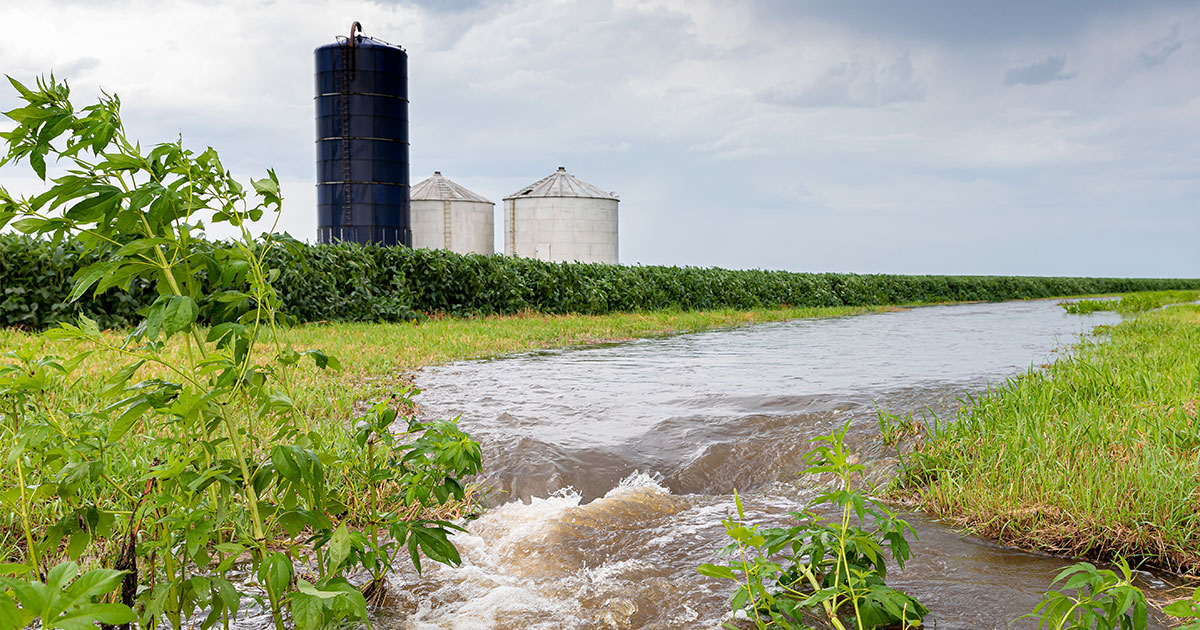Regulation of PFAS has become a priority for municipalities, farms of all sizes, manufacturers, and fire departments and firefighters, among others. Here are research tips for lawyers representing such clients.

Per- and polyfluoroalkyl substances (commonly referred to as PFAS) are in the news, in Wisconsin and nationwide, because of harm they can cause when present in water. Regulation of PFAS has become a priority for municipalities, farms of all sizes, manufacturers, fire departments and firefighters, among others. This resource list includes links to helpful resources for lawyers who represent private and public entities and individuals.
Federal Agencies
A variety of federal agencies responsible for the regulation of PFAS provide dedicated resource pages for PFAS.
U.S. Env’t Prot. Agency (EPA),Per- and Polyfluoroalkyl Substances (PFAS),www.epa.gov/pfas
U.S. EPA, PFAS Analytical Methods Development and Sampling Research,
www.epa.gov/water-research/pfas-analytical-methods-development-and-sampling-research
U.S. EPA, P2 Resources for Businesses, www.epa.gov/p2/p2-resources-business#tech
Food & Drug Admin. (FDA), Per- and Polyfluoroalkyl Substances (PFAS), www.fda.gov/food/chemical-contaminants-food/and-polyfluoroalkyl-substances-pfas
Nat’l Inst. of Env’t Health Scis., PFAS Research, www.niehs.nih.gov/research/programs/pfas/index.cfm
U.S. Dep’t of Defense, www.defense.gov/Spotlights/pfas/
Federal Legislative Material on PFAS
 Genevieve Zook is the reference & instructional services librarian at the U.W. Law Library. She is currently chair of the Public Relations Committee and past president of the Law Librarians Association of Wisconsin, a chapter of the American Association of Law Libraries.
Genevieve Zook is the reference & instructional services librarian at the U.W. Law Library. She is currently chair of the Public Relations Committee and past president of the Law Librarians Association of Wisconsin, a chapter of the American Association of Law Libraries.
Congressional investigations and reports on PFAS are available online.
U.S. Senate Comm. on Env’t & Pub. Works, PFAS: the View from Affected Citizens and States, www.epw.senate.gov/public/index.cfm/2021/6/pfas-the-view-from-affected-citizens-and-states
U.S. Senate Comm. on Env’t & Pub. Works, www.epw.senate.gov/public/index.cfm/home
EWG, PFAS Contamination in the U.S. (June 8, 2022), www.ewg.org/interactive-maps/pfas_contamination/
U.S. House of Representatives, Joint Hearing Before Comm. on Sci., Space & Tech., Subcommittee on Env’t & Subcommittee on Research & Tech., 117th Cong., Dec. 7, 2021, Forever Chemicals: Research and Development for Addressing the PFAS Problem, www.govinfo.gov/content/pkg/CHRG-117hhrg46186/pdf/CHRG-117hhrg46186.pdf
List of current Congressional Research Service (CRS) reports on PFAS, CRS, https://crsreports.congress.gov/search/#/?termsToSearch=pfas&orderBy=Relevance
Wisconsin Resources
Among many other duties, the Wisconsin Department of Natural Resources (DNR) oversees water-quality issues, and in 2019, the agency issued a final ruling on PFAS. The Wisconsin Legislative Council issued an information memo about water-quality laws.
Other Resources
Many other institutions and organizations provide resources about PFAS. A few of the most notable are listed below.
Nat’l Libr. of Med., PFAS Health Effects Database: Protocol for a Systematic Evidence Map, https://pubmed.ncbi.nlm.nih.gov/31284092/
Northeastern University PFAS Project Lab: The PFAS-Tox Database: A Systematic Evidence Map of Health Studies on 29 Per-and Polyfluoroalkyl Substances, https://pfasproject.com/2022/07/29/the-pfas-tox-database-a-systematic-evidence-map-of-health-studies-on-29-per-and-polyfluoroalkyl-substances/
Univ. of Maine, Raymond H. Fogler Libr., Hot Topics: PFAS & “Forever Chemicals”: Home, https://libguides.library.umaine.edu/pfas. This guide focuses on resources for Maine but also lists general books, articles, and news items on PFAS and links to a YouTube video that provides a quick explanation of PFAS.
Citizens for Safe Water Around Badger, PFAS Community Library, https://cswab.org/pfas/pfas-library/
National Academies,Guidance on PFAS Testing and Health Outcomes, www.nationalacademies.org/our-work/guidance-on-pfas-testing-and-health-outcomes
Water Law Series Published Pieces (to Date)
Articles
- Water, Water Everywhere: 50 Years of the Clean Water Act and Beyond, by Paul G. Kent, 95 Wis. Law. 22 (April 2022). Wisconsin has the third highest number of natural lakes of U.S. states but keeping these and other water resources clean and equitably available for all users is a challenge that increases by the day. Learn here about the basics of Wisconsin’s water laws and the issues that are catalysts for disputes about water use.
SIDEBAR: Series Debut on Water Law, by Joe Forward
BRIEFLY: Partnership for Corporate Water Stewardship
The Challenge of Wisconsin’s Water Abundance: Managing Stormwater in a Watershed Context, by Paul G. Kent, Erin O’Brien & Tracy Hames, 95 Wis. Law. 20 (May 2022). To effectively manage stormwater quantity and quality, we need to do so in the context of watersheds and hydrologic processes rather than as a series of discrete issues and programs.
Plugging the Holes in Wisconsin’s Groundwater Policy, by Prof. David A. Strifling, 95 Wis. Law. 40 (June 2022). Separate laws on groundwater and surface water withdrawal and the lack of a fully integrated regulatory scheme for high-capacity wells have more often led to conflict and uncertainty rather than to clarity. Wisconsin’s groundwater management regime is developing but still has gaps. The author discusses groundwater quantity and quality, the public trust doctrine, and interstate disputes.
Water Law Perspectives from the West, by Gregor MacGregor, 95 Wis. Law. 32 (July/August 2022). Understanding the backdrop of scarcity, the perceived stability surrounding property rights, and the value of water in a dry land will help Wisconsin lawyers learn from the western United States and their residents.
The Public Trust Doctrine: Managing Navigable Waters in the Public Interest, by Larry A. Konopacki, 95 Wis. Law. 26 (Sept. 2022). Wisconsin’s navigable waters are one of the state’s most valuable resources. The public trust doctrine plays a significant role in ensuring that they are managed in the public interest for all state residents and U.S. citizens.
This Land is Your Land: Keeping Public Trust Lakebeds and Riverbeds Open for the Public, by Michael Cain, 95 Wis. Law. 34 (Sept. 2022). Wisconsin’s navigable waters, lakebeds, riverbeds, and shorelines are subject to the state’s public trust doctrine. The author explains the doctrine and how tools developed by the state are used to protect these public riches.
Research Resources
Legal Resources: Researching Wisconsin Water Law, by Jenny Zook, 95 Wis. Law. 45 (May 2022). You can find water law indexed under property law, environmental law, and public health and welfare. Water is further divided by type. Here are tips to help direct your research.
Legal Resources: Researching Stormwater and Flood Management, by Carol Hassler, 95 Wis. Law. 43 (July/August 2022). Stormwater and flood management is a field that combines expert knowledge with laws and regulation at multiple levels of government. Here is a resource list that includes quick links.
Legal Resources: Researching Public Trust Doctrine Resources, by Elana Olson, 95 Wis. Law. 47 (Sept. 2022). The author points to legal resources about the public trust doctrine, which rises from language that has been in the Wisconsin Constitution since statehood in 1848.
» Cite this article: 95 Wis. Law. 35-37 (October 2022).
